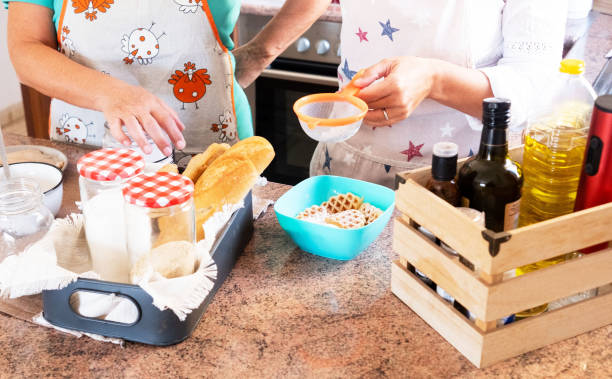
The Great British Bake Off’s final episode was the most-watched British TV event of 2015. More than 13 million tuned in to watch Nadiya’s tear-jerking speech. She made headlines around the world.
Bake Off is a kitsch and twee show, with the contestants surrounded by bunting in a marquee on the grounds of an upscale country house. But its appeal transcends gender and age.
A similar show culminated at the beginning of December on BBC Two with a few fewer viewers. The Great Pottery Throw Down saw four amateurs compete to win the title of Top Potter or make Keith Brymer Jones weep with joy.
This production is a must-see. The challenges include blindfolded potting, creating porcelain chandeliers, and pulling cup handles with hilarious innuendo. Matthew Wilcock is a young North Yorkshire art teacher who won the competition.
The number of spin-offs continues to grow. There have been six series of The Great British Sewing Bee and two of The Big Allotment Challenge. Next year, Bakery Off Creme de la Creme will feature teams of professional pastry chefs competing for glory. In the past, the competition for most viewers was usually between Coronation Street and Eastenders. Not macarons and puff pastry.
The shows that feature mundane and even retro activities like baking, sewing, or throwing pottery seem to captivate us. In a society that is becoming increasingly dematerialized and even deskilled, this interest suggests a contradiction between skilled practice and crafts.
All Risks Are Taken –
David Pye, an expert bowl turner and designer for industrial furniture, made the distinction in 1988 between “workmanship with certainty” and “workmanship with risk.”
He believed that the latter was becoming more prevalent in industrial societies, which are characterized by mass production processes and a lack of attention to material idiosyncrasies. After all, one iPad is identical to any other iPad.
Pye, on the other hand, believed that the craftsmanship of risk – craft – was prominent in every society’s material production until very recently. Craft is a delicate balance between judgment, skill, and technique. Pye said:
A worker who uses the craftsmanship of certainty cannot ruin the job. The risk-taking worker can be on the job in a matter of minutes, using any machine tools and jigs. This is the fundamental difference. Risk is real.
Two hand-thrown mugs or two hand-stitched garments will never look the same. As The Great British… series has shown, they fail in the most heart-breaking, mystifying, and gut-wrenching of ways.
It’s easy to understand why the Allotment Challenge struggled with viewers. The critics claimed that it was too slow or, to quote one, ” just as exciting as watching tomato skins dry.”
The title screen shows a dramatic disintegration. What scope is there for drama and tension in the allotment garden? The process of gardening is a slow one. Much is left up to the vagaries and whims of nature, and it can take months between sowing seeds, harvesting, and preserving.
Rotten tomatoes
Anyone who has watched The Throw Down in the past six weeks knows how dangerous pottery can be. This cruel viewer is hoping that at least one pot will break when the pots come out of the oven.
If you make your clay too wet, it will crumble. If you don’t get the speed right, your clay will crumple and cave. If you fail to remove the air from your clay or have too many variations in thickness in vessel walls, it will explode when heated at 1200degC. If you use the wrong powdered mineral alchemy for decoration, your vessel will be dull and colorless after firing.
A rotten tom is just that, a rotten tom.
What does our desire to see the “workmanship at risk” of our fellow citizens tell us about contemporary crafts? In the fast-paced world of modern capitalism with its microwaveable prepared meals and next-day (or, soon, drone), IKEA-equipped homes, and high street clothing produced in sweatshops, one conclusion is that there’s still a compulsion for people to value timeless, artistic skills.
This appreciation does not come wrapped in a romanticism that can be easily dismissed but speaks of the urgency and uncertainty demanded by such crafts – the highs and lows. Bake Off would have been boring if it had been filmed at the “bakery” in a supermarket chain. We may strive for convenience, but we will always be met with an irrepressible appreciation for the unique and skilled.
